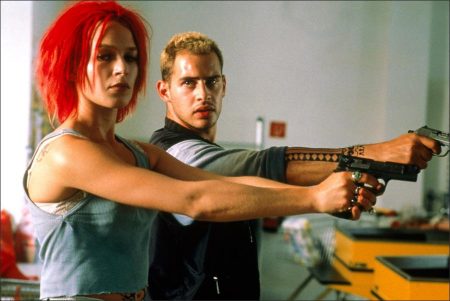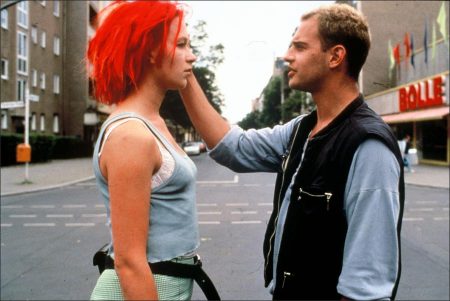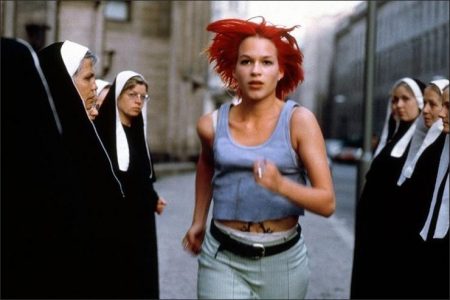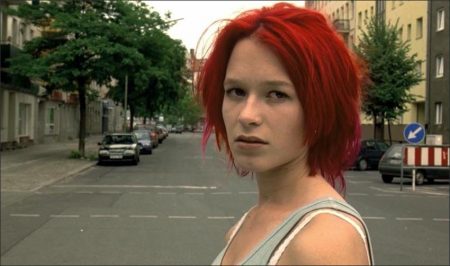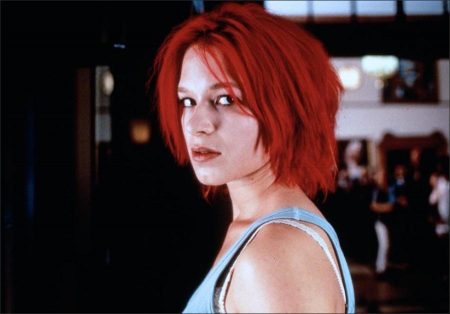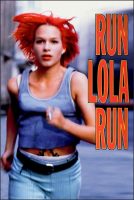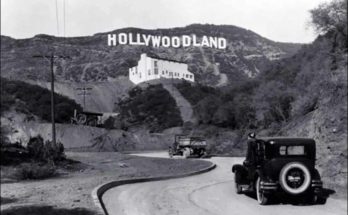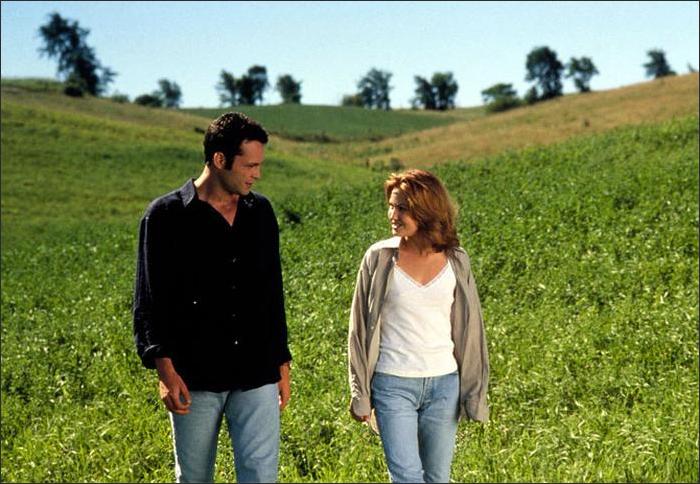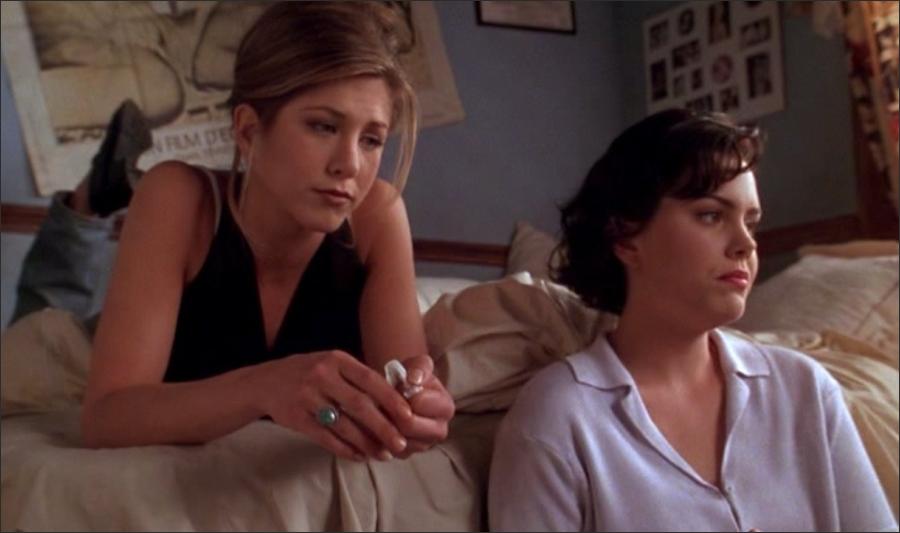Taglines: Jeden Tag, jede Sekunde triffst Du eine Entscheidung, die Dein Leben verändern kann.
Lola Rennt
Run Lola Run movie storyline. Presenting his third feature after last year’s acclaimed Wintersleepers, Tom Tykwer cranks up the volume, stiffens the pace, and jettisons us on one of this year’s most exhilarating cinematic adventures. A breathtaking race against the clock, Run Lola Run straps Tykwers’ playfully hip sensibilities to a fun-filled mix of romance, thrills, and action as his tireless heroine pounds the pavement and racks her brain to save her lover from danger.
Manni and Lola are twenty-something Berliners, way past cool and desperately in love. When Manni, a local criminal’s errand boy, loses twenty thousand Marks, he has twenty minutes to find the money or face retaliation. Not the brightest bulb, Manni turns to the quick-witted, resourceful Lola to devise a plan to save his hide. And so she does, and off she sprints, running for Manni’s life, for her love, and to find money somewhere, somehow.
Dangling three “what if” variations on Lola’s mission to save her mate, Run Lola Run propels us toward each outcome with a delicious peppering of surprises, quirks, and twists. A sure-fire hit with audiences, Run Lola Run brings to the screen two actors of immeasurable charisma: Franka Potente as the heroic, flame-haired Lola, and Moritz Bleibtreu as her doltish but devoted lover. Scoring his delirious staccato mix of animation, still photographs, and live action to a pounding techno beat, Tykwer reveals himself a virtuoso of the medium and, at the same time, a passionate believer in destiny and the transcendent power of love.
Run Lola Run (German: Lola Rennt, literally “Lola runs”) is a 1998 German thriller film written and directed by Tom Tykwer, and starring Franka Potente as Lola and Moritz Bleibtreu as Manni. The story follows a woman who needs to obtain 100,000 Deutsche Mark in twenty minutes to save her boyfriend’s life. The film’s three scenarios are reminiscent of the 1981 Krzysztof Kieślowski film Blind Chance; following Kieślowski’s death, Tykwer directed his planned film Heaven. Run Lola Run was released to generally positive reviews from critics.
The soundtrack of the film, by Tykwer, Johnny Klimek, and Reinhold Heil, includes numerous musical quotations of the sustained string chords of The Unanswered Question, an early 20th-century chamber ensemble work by American composer Charles Ives. In the original work, the chords are meant to represent “the Silences of the Druids—who Know, See and Hear Nothing.” The techno soundtrack established dialectical relation between motives of the movie: Rhythm, Repetition, and Interval among various spatio-temporal logics. This produces unification of contradictions like Time and Space or The cyclical and the linear.
Film Review for Run Lola Run
The setup: Lola gets a phone call from her boyfriend Manni. He left a bag containing 100,000 deutsche marks on the subway, and a bum made away with it. Manni is expected to deliver the money at noon to a gangster. If he fails, he will probably be killed. His desperate plan: Rob a bank. Lola’s desperate plan: Find the money somehow, somewhere, in 20 minutes. Run, Lola, run! The director, a young German named Tom Tykwer, throws every trick in the book at us, and then the book, and then himself.
The opening credits spring a digital surprise, as a shot of a crowd turns into an aerial point of view and the crowd spells out the name of the movie. Lola sometimes runs so frantically that mere action cannot convey her energy, and the movie switches to animation. There’s speedup, instant replay, black and white, whatever. And the story of Lola’s 20-minute run is told three times, each time with small differences that affect the outcome and the fate of the characters.
Film is ideal for showing alternate and parallel time lines. It’s literal; we see Lola running, and so we accept her reality, even though the streets she runs through and the people she meets are altered in each story. The message is that the smallest events can have enormous consequences. A butterfly flaps its wings in Malaysia, causing a hurricane in Trinidad. You know the drill.
Franka Potente, who plays Lola, has a certain offhand appeal. I liked her, though I can’t say I got to know her very well, and she is usually out of breath. She runs down sidewalks and the middle of streets, arms pumping, bright red hair flying, stomach tattoo wrinkling in time with her footsteps. She loves Manni and wants to save him from his own stupidity.
Occasionally the movie pauses for moments of sharply seen detail, as when her rich father refuses to give her the money, tells her he plans to leave home and marry his mistress, and throws in for good measure: “I’d have never fathered a girl like you. You’re a cuckoo’s egg.” Manni does his share of running, too, and there are various alternate scenarios involving car crashes, gunshot wounds and the sly use of that ancient movie situation where guys are carrying a huge sheet of plate glass across the street. Tykwer also adds segments titled “Now and Then,” in which he singles out minor characters on the screen and uses just a few startling flash-frames to foresee their entire lifelines.
“Run Lola Run” is essentially a film about itself, a closed loop of style. Movies about characters on the run usually involve a linear story (“The Fugitive” comes to mind), but this one is basically about running–and about the way that movie action sequences have a life and logic of their own. I would not want to see a sequel to the film, and at 81 minutes it isn’t a second too short, but what it does, it does cheerfully, with great energy, and very well.
Run Lola Run (1998)
Directed by: Tom Tykwer
Starring: Franka Potente, Moritz Bleibtreu, Herbert Knaup, Nina Petri, Joachim Król, Armin Rohde, Heino Ferch, Suzanne von Borsody, Sebastian Schipper, Julia Lindig
Screenplay by: Tom Tykwer
Production Design by: Alexander Manasse
Cinematography by: Frank Griebe
Film Editing by: Mathilde Bonnefoy
Costume Design by: Monika Jacobs
Set Decoration by: Irene Otterpohl
Art Direction by: Attila Saygel
Music by: Reinhold Heil, Johnny Klimek, Tom Tykwer
MPAA Rating: R for some violence and language.
Distributed by: Prokino Filmverleih
Release Date: August 20, 1998
Views: 403
